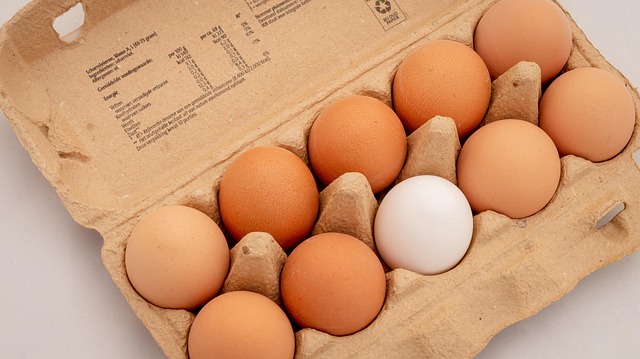After ovarian cystectomy, individuals face complex emotional adjustments regarding fertility and future plans. Exploring alternative pregnancy options like egg donation is impacted by personal feelings, societal perceptions, and support systems. Building robust support networks is crucial for processing emotions, addressing fears, and fostering resilience during this journey, particularly focusing on pregnancy options after ovarian cystectomy.
“Exploring egg donation, a path towards parenthood, unveils a complex web of emotions. This article delves into the nuanced feelings associated with seeking an egg donor, offering guidance for those navigating this journey. We examine the emotional responses, from understanding personal reactions to cystectomy and its impact on reproductive choices, to fostering support systems. By exploring alternative pregnancy options after ovarian cystectomy, individuals can make informed decisions, ensuring healthy coping mechanisms throughout their path to parenthood.”
Understanding Emotional Responses to Egg Donation
Many individuals and couples face a complex emotional landscape when considering egg donation, especially in scenarios where traditional reproduction is compromised due to medical conditions like ovarian cysts. The decision to proceed with egg donation after such procedures can evoke a range of feelings. Some may feel relieved, finding solace in exploring advanced pregnancy options. This could be particularly true for those who have endured the physical and emotional toll of managing cysts or other related issues.
On the other hand, there might also be anxiety and uncertainty surrounding the process. Emotional responses can vary from individual to individual, with some expressing concern about the potential impact on their identity, relationships, and future family dynamics. Understanding these feelings is crucial in providing support for those considering egg donation as part of their reproductive journey, especially when dealing with post-cystectomy pregnancy options.
Navigating Personal Feelings After Cystectomy
After an ovarian cystectomy, individuals often find themselves navigating a complex landscape of personal feelings and societal perceptions regarding their fertility and future plans. This period can be emotionally charged as people grapple with the reality of their changed reproductive landscape. Many may experience a range of emotions, from initial relief to anxiety about the loss of potential pregnancy options.
It’s essential to acknowledge that there is no ‘right’ way to feel after such a procedure. Some might choose to explore alternative pregnancy options, like adopting or using an egg donor, while others may decide to focus on other aspects of their lives. This decision should be personal and free from societal pressure, enabling individuals to heal emotionally and make informed choices that align with their desires and circumstances.
Exploring Reproductive Choices Beyond Ovarian Cysts
Many individuals, facing challenges like ovarian cysts that may impact fertility, explore various reproductive choices to achieve their dream of parenthood. Beyond the well-known option of egg donation, there’s a growing awareness and acceptance of different paths towards pregnancy. After undergoing ovarian cystectomy or facing other fertility hurdles, couples are increasingly open to considering alternative methods such as in vitro fertilization (IVF), intracytoplasmic sperm injection (ICSI), or even adoption, tailoring their decisions to their unique circumstances. These options offer hope and a chance for families to come into being, regardless of the initial obstacles faced.
The exploration of these pregnancy alternatives is not just about medical solutions but also about emotional journeys. It involves navigating complex feelings around fertility, loss, and the desire to build a family. Support from healthcare professionals, support groups, and loved ones plays a pivotal role in helping individuals and couples make informed choices that align with their personal values and aspirations, fostering a sense of empowerment during this transformative phase.
Building Support Systems for Healthy Coping Mechanisms
Navigating the emotional landscape surrounding egg donation is a significant step in the journey for many individuals and couples exploring alternative pregnancy options after ovarian cystectomy. Building a robust support system is integral to fostering healthy coping mechanisms during this process. This can include joining support groups, both online and offline, where individuals share their experiences, offer advice, and provide emotional encouragement. Therapists and counselors specializing in reproductive health can also play a crucial role in helping individuals process their emotions, address any fears or anxieties, and develop adaptive strategies for dealing with the complexities of egg donation.
Additionally, fostering open communication within relationships is essential. Partners, family members, and friends can serve as a safety net, offering understanding and reassurance. Encouraging honest conversations about expectations, concerns, and hopes can strengthen bonds and create an environment conducive to healthy emotional growth. Embracing these support systems allows individuals to navigate the emotional intricacies of egg donation with resilience, ensuring they have the resources needed to cope effectively and move forward on their reproductive journeys.
Addressing emotional responses to egg donation is crucial, especially when considering the impact on personal and societal perceptions. By understanding and navigating these feelings, individuals can make informed decisions about their reproductive journey, including exploring various pregnancy options after ovarian cystectomy. Building support systems and adopting healthy coping mechanisms are essential steps in fostering a positive environment for those embarking on this unique path. This holistic approach ensures that individuals feel empowered to choose the right course of action, free from societal pressures, ultimately enhancing their overall well-being.
